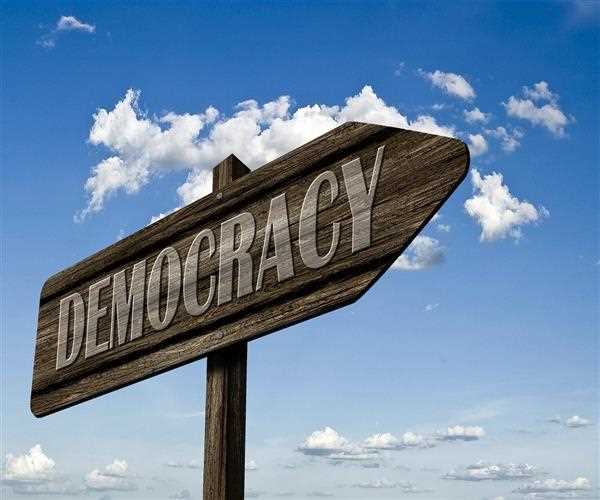India adopts democracy because democracy only provides an efficient and stable means for ensuring equality, justice and freedom to the people. Many years of colonial rule have deprived the nation of effective power, so the choice was made in favour of people’s rule to involve them directly in the process of decision-making. It is in line with this decision that there will be complete and absolute respect of individual rights and promotion of public welfare, for the creation of an all-embracing society.
The promotion of democracy is pliant with India’s traditional culture of discussing and negotiation. Sabha and Samiti show that participative governance is not alien but founded on India’s rich cultural history. By opting for the democratic form of governance, India has opted for this system while respecting the traditions of the different States – and recognised that the Indian people, after getting rid of the centuries of colonial rule, deserve a government that will ensure free speech, free access to information, free choice by the people and no cast, religious or economic barriers to these rights.

Democracy also responds to India’s current problems, such as social and, in particular, economic inequality. He sees its capacities, and they are based on the fact that it allows marginalised groups to contribute to decision-making processes. In this regard, the people possess the institutions that can be used to call for the official accountability for unfair actions and request to initiate the processes of the fair development. By doing so, this system affords equal chance for every citizen regardless of their status to influence the future of this country.
Therefore, India's democratic principles are extremely important for maintaining the social fabric of this nation. Because of so many different languages, religions, and cultures, democracy heals wounds by offering nonviolent ways to settle disputes. It also enables people to chart their future within a general context that respects a country's territorial integrity, thus eliminating social blotting or domination over other groups.
Lastly, the heart and soul of Indian civilization are rooted in democratic aspirations. I think democracy also embodies the country's resolve to establish a society grounded on justice, equality, and human dignity. India's democracy, however, stands tall by enabling its citizens and establishing accountability. It remains a herald of hope and pluralism in today’s world.
Conclusion
In conclusion, democracy is the soul of India and its values of equality, justice, and freedom. I imagine being able to understand the latest news, being able to work actively for the government, as well as holding officials responsible for the answer of their actions. Because unifying a country that can boast a huge degree of diversity is the case of democracy, which gives everyone a voice and acknowledges it. They developed to protect individual interests simultaneously with order and coordinated progress, making it the best system for India’s development. Tailor-made for India, it has emerged as a consistent and direct affirmation of the solemn pledge to an egalitarian, liberal, and assimilative society.